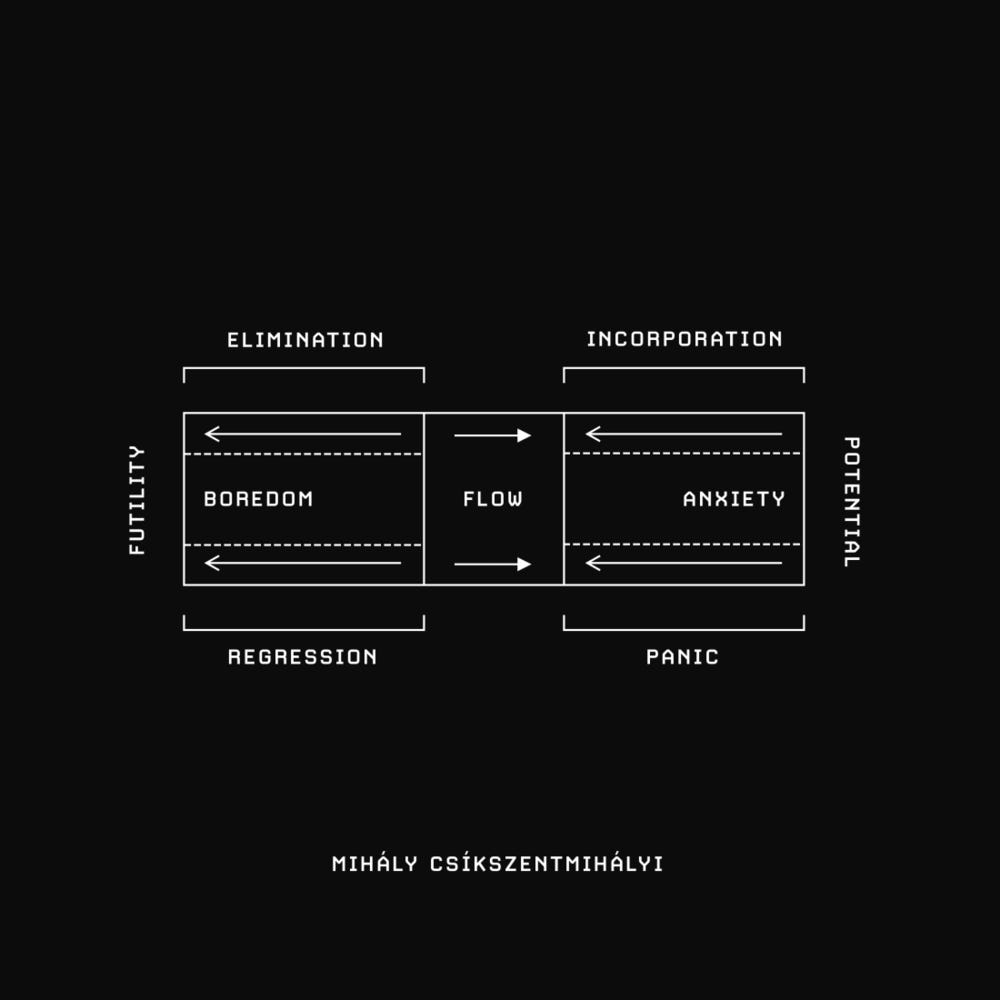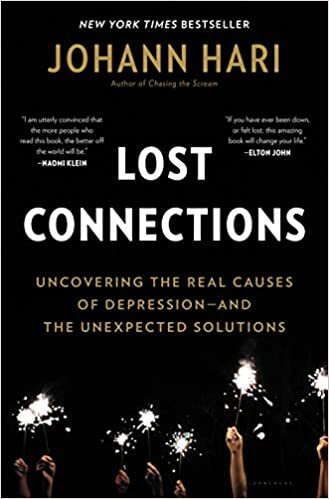Finding Your Flow
How to Overcome Distractions, Feel Better, and Increase Productivity
Hi Friends,
Happy Sunday and welcome to a fresh new issue of the Path Nine Newsletter. The last few weeks have presented us with some incredible weather, and not just by Seattle standards. You know what that means: cocktails and sunburns.
During our downtime, we’re exploring the Seattle neighborhoods and capturing the beautiful graffiti that fills the newly-abandoned shops.
But, with all this nice weather comes a few unexpected drawbacks to productivity. I suspect the combination of forced quarantine and the lack of outdoor time is creating a perfect storm of isolation hibernation. Which, as you may imagine, is why I’ve decided to focus this week’s article on finding flow state. If, like me, you find yourself productivity-challenged, take a step back, read the article below, and let me know if you find it helpful!
Alright, let’s dive in.
Quick note: If you’re reading this but haven’t subscribed, join the entrepreneurs, architects, psychologists, technologists, and digital creatives that read Path Nine each week by subscribing now!
/Insight 💭
Finding Your Flow: How to Overcome Distractions and Feel Better
3 min read
- written by Kevin Kirkpatrick
What is Flow? For athletes, it’s being in the zone. For creatives, it’s the intense fire of inspiration. Flow State is that point in work when it doesn’t feel like work. You’re motivated, energized, and deeply focused. The world around you fades to black. You lose your sense of time and become one with that energy.
Many people associate “flow” state with the digital productivity hacks that knowledge workers seek when building and designing software. But the concept was actually coined in the 1960s by Dr. Mihaly Csikszentmihalyi and has been heavily-referenced for years. In an interview with Wired magazine, Csíkszentmihályi described flow as:
“being completely involved in an activity for its own sake. The ego falls away. Time flies. Every action, movement, and thought follows inevitably from the previous one, like playing jazz. Your whole being is involved, and you're using your skills to the utmost.”
Image courtesy of Visualize Value
Flow is the ideal work situation. Distraction is the enemy of flow. And right now, our world is very distracting.
A lot of people are suddenly forced to re-evaluate the common workday. A seemingly idealistic work situation — the pajamas, the coffee, the tv playing just a little — has delivered a drastic new demand for our attention, our adaptability, and our willingness to push forward. And the entire world, and our individual bosses, are all going to look at our productivity at this time as a metric for this new reality.
Are there days where you feel like you worked really hard and yet nothing got done? This new work-life balance, or complete absorption of one another, is a radical adjustment — for everyone. So, let’s dig into it. What is affecting our productivity and what can we do about it?
Challenges to Finding Flow
Lack of prioritization. When we put the same emphasis on all our tasks, it becomes impossible to choose which we should prioritize and when.
Lack of focus. It’s difficult to get anything done when you’re trying to do everything at once.
Inability to say “no”. If you prioritize everything, you end up prioritizing nothing. Saying no is hard, but so is failure.
Steps to Finding the Flow State
Like any other goal, breaking it into small increments makes it easier to achieve the desired results. The steps below can be used in any order and under changing circumstances. Don’t try just one; experiment, learn, and adapt.
1. Ruthlessly Prioritize
Each day write a to-do list, then narrow it down to the top three. Find the places where you can leverage the Pareto principle and get 80% of the value for 20% of the effort. Instead of trying to do it all at once, simplify these tasks to jobs that could be done in no more than 90 minutes. Once you've found your top three tasks, it's time to get focused.
2. Be Intentional
Create a structured and intentional approach to each day by paying close attention to your thoughts and feelings. Mindfulness does not unlock the door to flow state, instead, it tells us which path we should follow in the maze. Throughout the day, remain mindful of how you feel and when in doubt, return to this list.
3. Cultivate Inspiration
We must remain ever curious. Inspiration is a powerful weapon that can be used to further enhance our productivity. When we feel inspired, motivation is triggered and productivity seems to flow naturally.
4. Build Life Hacks
Create mechanisms to reduce the number of repetitive, step-by-step tasks. Enjoy the benefits of the automated processes as well as the tickle of finding newness in the mundane.
5. Be True To, and About, Yourself
Be honest about your workload to yourself and others - this includes saying “no”. Set realistic deadlines and be uncompromising about the things that distract you from your most productive work. Reduce the busy work, cut the meetings, and prioritize your focus time.
6. Take *Real* Breaks
Breaks allow us to reconnect with ourselves and the world around us. They provide a chance to look inward and reset our batteries. Paradoxically, we’re more engaged when we take time to disengage.
7. Adjust Your Perspective, Literally
There's a good reason that you see writers at Starbucks. Shifting our environment is like rearranging your furniture — it changes your perspective. When you look at the same desk, with the same coffee cup, and the same chair every week, you're likely to lose inspiration. Instead, seek spaces that inspire and adjust your perspective.
8. Drop The Perfectionism and Go
One of the biggest impediments to creative productivity is perfectionism. We sit at the computer, thinking about what we're going to do, instead of just doing it. The more we think, the harder it gets. Don’t get trapped in your head. Just start.
The simple truth is that everyone can find flow. The key is not to overthink it. If it’s not happening, explore alternative approaches that help you. There’s no wrong way to do your best work.
/Information 📰
2 min read
1/ 68 Bits of Unsolicited Advice — Kevin Kelly
Kevin Kelly, Wired Magazine’s Co-founder, and Senior Maverick recently turned 68. Instead of letting another year go by, seemingly unnoticed, Kelly decided to sit down and write some pithy advice to younger generations. I loved reading these and found many to be a great reminder for a life well-lived. Here are a few favorites:
“Gratitude will unlock all other virtues and is something you can get better at.”
“Don’t trust all-purpose glue.”
“You are what you do. Not what you say, not what you believe, not how you vote, but what you spend your time on.”
2/ How people from the Middle Ages dealt with self-isolation
It’s easy to feel like you’re living in a unique time — in part, you are. But, most of the world’s greatest lessons are sitting in the archives, just waiting to be explored. I found this article to be a nice reminder that, while things may seem dark and dreary, there’s always light in the darkness.
3/ Quarantine love stories are becoming a romance trope — By Aja Romano
Are you more or less attracted to people you spend a lot of time with? Aja’s piece was a fascinating look into new normal for relationships and the post-quarantine love trope that’s emerging. As Aja points out, there are scientific reasons for the new trope and a growing romantic closeness.
/Innovation 🧰
<1 min read
Loftie
Break up with your smartphone alarm and get a better night's rest.
A few years ago, a friend and I dreamt of an intelligent alarm clock that not only removed the dependence on your phone but actually helped you sleep better. (I mean, who wouldn’t want that?!) Loftie is one of the many interesting companies tackling the complex world of tech-enabled sleep enhancements. For anyone looking to sleep well and feel better, this might just be the solution.
/Inspiration 📃
The present time has one advantage over every other – it is our own.
— Charles Caleb Colton
/Ideas 📚
<1 min read
Lost Connections: Why You’re Depressed and How to Find Hope
by Johann Hari
What is making me sad? How can I find the happiness that others seem to possess? Are some people just naturally happier than others? If so, why?
These are the questions I’ve personally faced many times, and this is what initially drew me to Hari’s book. Lost Connections is a personal journey and exploration of the reactive and endogenous components that cause depression. For Hari, this personal journey isn’t just about finding fault in the current system’s general lack of interest in examining the root cause of depression. Instead, Hari uses his research and narratives to support a new approach to addressing these issues head-on.
While he is certainly not the first to call attention to the system or offer an alternative view, he presents a rational view that may be just what people need in a time like this.
Enjoying Path Nine?
If you liked this post, I’d really appreciate it if you share the post!
Thanks for reading, and see you next week,
— Kevin K.





